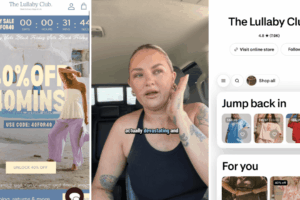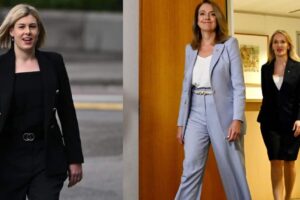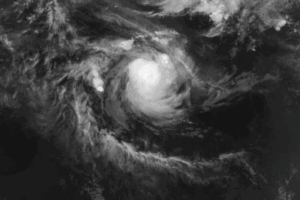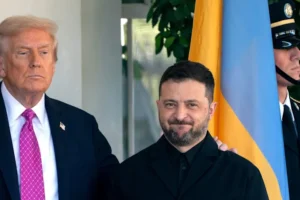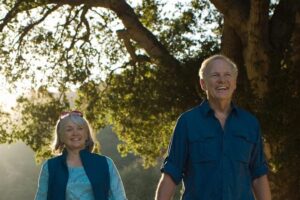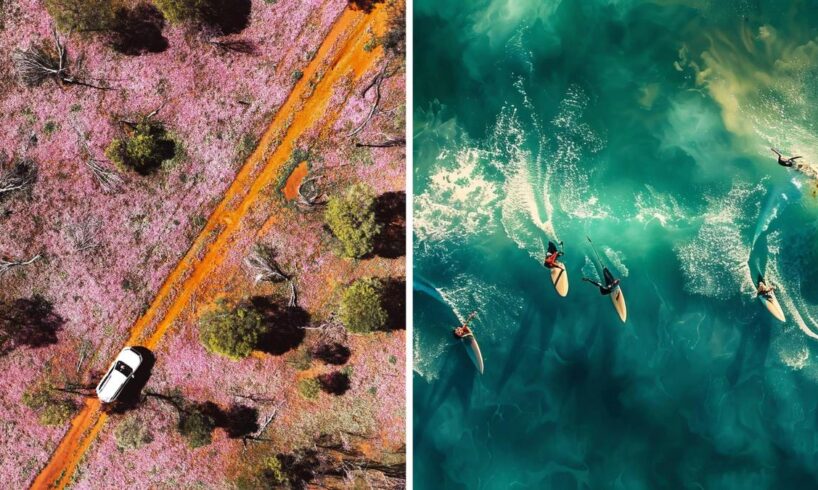
Are we resilient? Laid-back? Determined? Parochial? Relaxed? Friendly? Easy going? Prepared to have a go? Loyal? Tough?
Unique? We like to think so.
Just what does it mean to be West Australian?
One thing is clear. We are from here. And there. And everywhere.
And there is also a feeling that sometimes rises to the surface that we are a bit different to our cousins in the east.
Maybe better?
Let’s not forget WA had been a rather reluctant participant in the push for Federation in the late 1890s.
The debate at the time pitted locals who worried about competition from the east if customs barriers were removed against the sentiment on the WA goldfields where miners were almost all ‘t’othersiders — recent arrivals who had strong connections with the east.
In 1900, WA held a referendum which resulted in a vote in favour of Federation by 44,652 to 19,636 and the colony became one of the original States in the new Commonwealth of Australia from January 1, 1901.
But as Thomas Musgrave pointed out in 2003, in The Macquarie Law Journal, 28,143 votes were cast in Goldfields electorates, and of those, 26,330 were in favour of the union.
Without those votes, the result looks very different.
But the view persisted that the Commonwealth government, so far away, used tariff policies that benefited Eastern States industry but made life harder for WA farmers.
Secessionism remained a constant.
The mood was reflected in another referendum, held in conjunction with a WA general election in 1933 when, by a two-to-one majority, voters chose secession.
The matter was referred to a joint committee of the Houses of Commons and Lords, which rejected the bid on the grounds that the British Parliament could not act without the Australian Parliament’s approval.
Historian Geoffrey Bolton’s book Land of Vision and Mirage, Western Australia Since 1826, said the Federal government had in 1933 set up the Commonwealth Grants Commission to “provide financial assistance to claimant States such as Western Australia and Tasmania”.
“Some called it an ‘anti-secessionist committee’,” as it “helped assuage the West’s sense of neglect,” he wrote.
But WA is now overwhelmingly the main driver of the national economy. And is determined to make sure a fair share of the money generated here but sent into the nation’s bank account is returned from Canberra.
The letters GST and the demand that we get a proper share are ingrained on this side of the country.
Former Liberal premier Richard Court said that to be Western Australian was to be “proudly independent”.
Camera IconRichard Court. Credit: Bill Hatto/WA News
“One of our defining characteristics is that we can live happily without Canberra interference,” Mr Court said.
Aiding us in that attitude was the vastness of the Nullarbor Plain.
“The Nullarbor protects us in so many ways,” Mr Court said. “We have had to be more independent historically.”
There was a spectacular manifestation of the go-it-alone mentality during the COVID years when then-premier Mark McGowan declared the State “an island within an island”. He shut the borders, instituted strict quarantine and vaccination measures, social distancing and lockdown rules.
The resources sector pivoted to keep its workforce virus-free and still producing the mountains of cash.
It was another example of the narrative that feeds our sense of uniqueness. Our have-a-crack mentality. Our “WA-ness”.
And while eastern staters might have felt the need to sniff about our parochialism, for us it was proof that we are different — in a good way.
Mr Court said that in contrast to WA’s independence, the eastern seaboard was inflicted with “group think”.
“Currently they are all busy jumping over the ‘no energy’ cliff, and wondering why industry is leaving,” Mr Court said.
“The Western Australian economy is based on being internationally competitive, whereas so much industry in the east has not survived the removal of protective tariffs, and energy intensive industries need subsidies to survive.”
Mr Court said our closeness to Asia and the State’s vast geographical spread were important factors.
“Our time zone is an Asian friendly time zone and we entered the so-called Asian century decades before the east,” he said.
“We are a huge State by global standards so can enjoy the Mediterranean south through to the remote majestic Kimberley regions in the north.
“We have the best beaches and the best desert. We have it all.”
WA Opposition Leader Basil Zempilas said if you were to ask a WA folk if they saw themselves first and foremost as Australian or West Australian, most would answer, “are you kidding? I’m a West Aussie first”.
Camera IconBasil Zempilas at The Hub in Bentley. Credit: Daniel Wilkins/The West Australian
“That speaks to an inherent pride in who we are, what we’ve faced and what we’ve achieved,” he said.
“While we’re all proud to be Australian, we’re prouder to be West Australian and see ourselves as different to the rest of Australia.
“Whether you were born here or have come here, if you want to have a crack, get ahead and make a mark, you can.”
Mr Zempilas agreed the State’s isolation, size and harsh natural environment had bred a determined attitude.
“We’ve had to be bold, ambitious and get on and do things ourselves,” he said.
“That’s why we punch above our weight in terms of our contribution to Australia’s economy and our significance as an exporter in the global economy.
“The development of our agricultural and resources industries happened because leaders were visionary, made courageous decisions and then West Australians delivered on those visions.
“None of that success could have come if we’d been meek or cautious.”
He added: “There’s a toughness and a grittiness to West Australians but don’t mistake that for simplicity.
“The clever, sophisticated and innovative way we’ve tackled and overcome the challenges before us is just as important to our success and growth.
“As we embark on new frontiers of economic development, the use of innovation and technology developed and employed by the brilliant minds in this state, will be more important than ever.”
Curtin University Associate Professor in humanities and social sciences Samantha Owen said she believed the State was evolving beyond the traditional isolationist narrative.
Camera IconCottesloe beach. Credit: Adobe Stock/beau
Associate Professor Owen said WA Governor Chris Dawson’s recent apology for the historic Pinjarra massacre of Bindjareb Noongar people led by his predecessor James Stirling indicated an increased awareness of the complications and context of the State’s white settlement history.
“It also moves us on from narratives around are West Australians defined by isolationism or some of the things we have needed historically as stories around our self reliance, our frontier spirit,” she said.
“Maybe what we are finding at the moment is that there is not one thing that defines a West Australian identity, that there are many elements that define it and we need to find a space to recognise all of those.
“At the moment we have really moved on from that COVID period when we were really shaped by a need to look inward, and that awareness of that isolationism.
“We are beginning to look critically at what has shaped us and at that colonial and that settler past, and beginning to ask difficult questions about who and what we want to be defined by into the future and what we want to commemorate.”
Mr Dawson said that as Australians, we are of course “one and free”.
“But on this weekend in particular, the special people on this side of the country are free to celebrate what it is to be West Australian,” Mr Dawson said.
“We are unique. Proudly so. We are independent and resourceful — because we have had to be throughout our history.
“The rest of the country might be some distance away from us — the greatest State in Australia. But that makes us comfortable with huge distances, and quiet beautiful spaces.
“We are laid-back without being lazy. We are friendly without being too forward. And we are leaders without needing to be loud.
“We have the sunshine, the beaches, the resources, the colours, the wildflowers and the wild spirit.
“The Indigenous culture, and the amazing diversity of our landscape and our people, who are some of the most generous, spirited and optimistic in the world.
“As Governor, those people and this place make me proud every day.
“We can all be proud this weekend. Because we are Western Australia.”
Camera IconWest Australia Premier Roger Cook at Parliament House in Canberra, Tuesday, November 4, 2025. Credit: MICK TSIKAS/AAPIMAGE
Premier Roger Cook admitted he “might be a little biased” but declared that he thought “most West Aussies know we live in the best State in Australia”.
“Whether you’re in the Kimberley, Albany, Geraldton, Kalgoorlie — or if you’re one of the two million people who live in our beautiful western capital, Perth — there really is no place like it.
“The laidback lifestyle and our friendly, welcoming attitudes have created a sense of community that sets us apart from the rest of the country.
“Through the hard work of every West Aussie, our economy is the engine room of the nation, and thousands of people from all over the world are choosing to call WA their new home each year.
“But even with so much to be proud of, we don’t take ourselves too seriously. We work hard and play even harder. We know how to have a laugh and enjoy life — preferably over a beer.
“Defining what makes Western Australia the best is not easy. But we know it and get to live it every day.”
